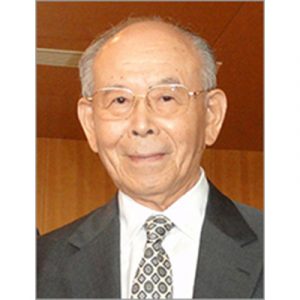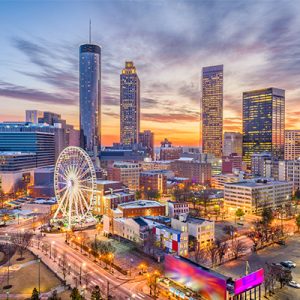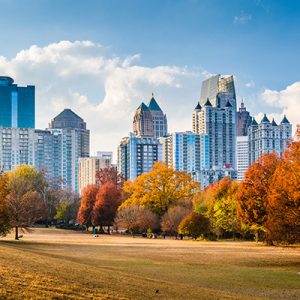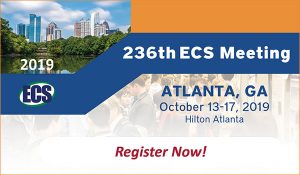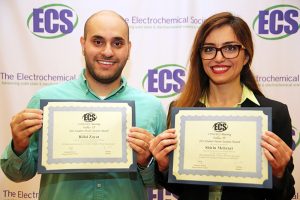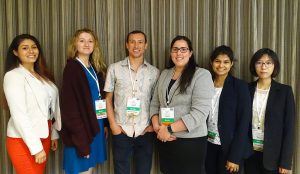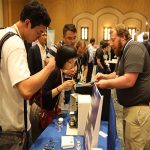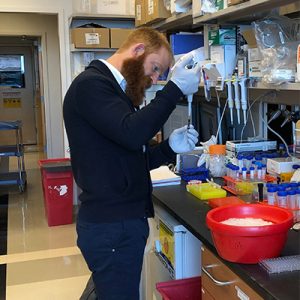 Target experts in your field through a symposium sponsorship!
Target experts in your field through a symposium sponsorship!
Book your sponsorship by Friday, August 2
By sponsoring a symposium at the 236th ECS Meeting, October 13-17, 2019 in Atlanta, GA, you will be directly supporting the scientists and engineers who make the meeting possible. Sponsorships offset travel expenses, registration fees, complimentary proceedings, and/or host receptions for invited speakers, researchers, and students. Symposium sponsorships offer a unique opportunity to highlight your brand to a targeted audience at ECS. (more…)


